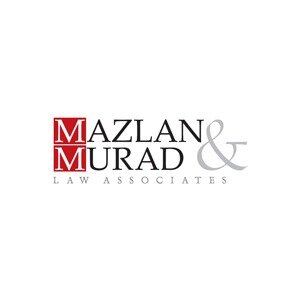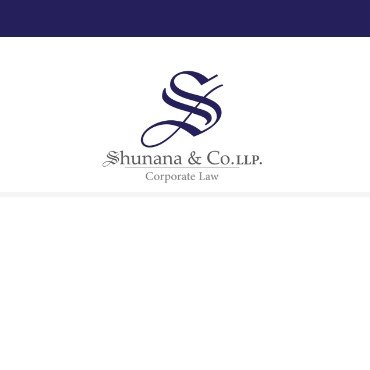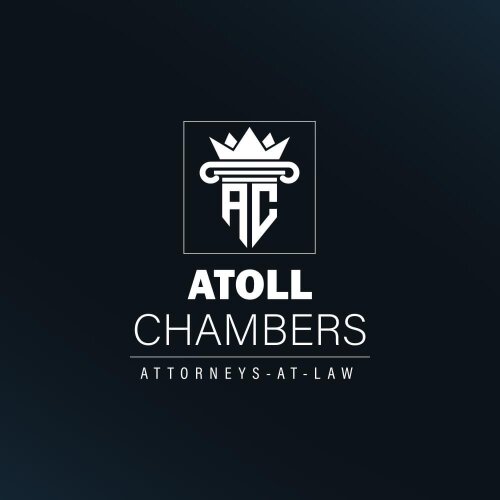Best Commercial Real Estate Lawyers in Maldives
Share your needs with us, get contacted by law firms.
Free. Takes 2 min.
Free Guide to Hiring a Real Estate Lawyer
Or refine your search by selecting a city:
List of the best lawyers in Maldives
About Commercial Real Estate Law in Maldives
The commercial real estate law in Maldives provides the standard procedures and regulations needed in acquiring, developing, selling, leasing and managing commercial properties such as offices, retail stores, hotels, and other commercial spaces. The law is a complex amalgamation of several statutes that govern the relationships among the various parties involved, including owners, tenants, developers, agents and the government.
Why You May Need a Lawyer
In Commercial Real Estate in Maldives, a lawyer's role can be indispensable. When dealing with complex real estate transactions, whether you are buying, selling, or leasing commercial properties, you might need legal assistance to understand the contract terms and obligations, zoning laws, title issues, and tax implications. Moreover, construction disputes, property management issues, eviction procedures, or any litigation involving commercial property would require expert legal guidance.
Local Laws Overview
The primary legislation governing real estate transactions in Maldives, including commercial property, is the Land Act. Special emphasis is placed on lease agreement regulations, title transfers, and land use restrictions. For instance, the Foreign Investments Act articulates specific factors and conditions under which foreigners can run businesses in Maldives, which could include obtaining commercial premises. In addition, local laws and regulations also address zoning laws, occupancy permits, and construction standards that may impact commercial property transactions.
Frequently Asked Questions
Can a foreigner own commercial property in Maldives?
While foreign ownership of land is generally prohibited in Maldives, foreigners can acquire a leasehold right on commercial properties for a period typically up to 50-99 years, with the requirement of local partnership in some cases.
What are common disputes in commercial real estate in Maldives?
Common disputes often revolve around contract disagreements, breaches of lease terms, construction disputes, boundary issues, and eviction procedures.
Are there any restrictions on the use of commercial property?
Yes, commercial properties in Maldives are subject to zoning laws. These laws determine what activities or businesses are allowed in specific areas.
How can someone protect their interests when entering a commercial lease?
A clear and comprehensive lease agreement assisted by a real estate lawyer is the best method to safeguard one's interests. It's important to understand the terms, obligations, and exit strategies.
What are the tax implications of owning commercial property?
There could be multiple tax implications including Land Tax, Business Tax and potentially Goods and Services Tax, depending on the nature of commerce. As tax laws can be complex, it's advisable to seek professional help.
What happens if there is a breach of a Commercial Lease Agreement?
Any breach of agreement can result in penalties as defined in the lease agreement which can include monetary fines or termination of the lease. Legal help may be needed to navigate such situations.
Do I need a real estate broker to purchase commercial property in Maldives?
While not required, a real estate broker may help navigate the complex real estate market. However, for legal aspects, seeking assistance from an experienced lawyer is crucial.
What are common environmental considerations for commercial properties?
Commercial properties are subject to environmental regulations related to sewage disposal, waste management, and land use effects on local ecosystems. Any violations can lead to severe penalties.
Can I develop a commercial property as I wish?
Development must follow local construction standards and be according to the permits granted. Any unauthorized changes can lead to penalties or the revocation of permits.
What happens if the ownership of the property changes during a lease period?
Generally, the lease continues under the new owner. However, specific clauses in the lease agreement could affect this, hence it's important to put such considerations in the contract.
Additional Resources
Some of the resources that can provide helpful information include the Ministry of Economic Development for investment-related queries, the Department of Judicial Administration for matters related to dispute resolution, and the Ministry of Housing and Urban Development for zoning and construction-related rules and regulations.
Next Steps
If you need legal assistance in commercial real estate, it is advisable to hire a lawyer who specializes in Maldivian property law. They can help you understand the complex procedures, negotiate agreements, and protect your rights and interests during any real estate transaction or dispute. It is also advisable to engage local experts or consultancy firms who understand local market dynamics and regulatory environment for sound investment and business decisions.
Lawzana helps you find the best lawyers and law firms in Maldives through a curated and pre-screened list of qualified legal professionals. Our platform offers rankings and detailed profiles of attorneys and law firms, allowing you to compare based on practice areas, including Commercial Real Estate, experience, and client feedback.
Each profile includes a description of the firm's areas of practice, client reviews, team members and partners, year of establishment, spoken languages, office locations, contact information, social media presence, and any published articles or resources. Most firms on our platform speak English and are experienced in both local and international legal matters.
Get a quote from top-rated law firms in Maldives — quickly, securely, and without unnecessary hassle.
Disclaimer:
The information provided on this page is for general informational purposes only and does not constitute legal advice. While we strive to ensure the accuracy and relevance of the content, legal information may change over time, and interpretations of the law can vary. You should always consult with a qualified legal professional for advice specific to your situation.
We disclaim all liability for actions taken or not taken based on the content of this page. If you believe any information is incorrect or outdated, please contact us, and we will review and update it where appropriate.
Browse commercial real estate law firms by city in Maldives
Refine your search by selecting a city.















